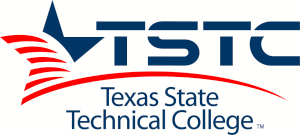
Texas State Technical College (TSTC) is a two-year technical state college with ten campuses throughout Texas. It is the only state-supported multiple campus institution in Texas that operates under an outcomes-based formula funding tied to graduates' successful employment. In partnership with business and industry, TSTC's statewide mission is to place more Texans in high-demand jobs and help fill the skills gap in the state.

The Florida Board of Governors is a 17-member governing board that serves as the governing body for the State University System of Florida, which includes all public universities in the state of Florida.

The State Corporation Commission, or SCC, is a Virginia (USA) regulatory agency whose authority encompasses utilities, insurance, state-chartered financial institutions, securities, retail franchising, and railroads. It is the state's central filing office for corporations, limited partnerships, limited liability companies and Uniform Commercial Code liens.
The Iowa Communications Network (ICN) is a state-administered fiber optics network designed to provide equal access to Iowans with modern telecommunication resources.

The Colorado Commission on Higher Education (CCHE) was established in 1965 by the Colorado General Assembly. The Commission replaced an association which met informally to consider matters related to higher education. The Colorado Department of Higher Education (DHE) is the principal department of the Colorado state government responsible for implementing the policies of the CCHE.
The Oregon Office of Degree Authorization (ODA) is a unit of the Office of Student Access and Completion, with responsibilities related to maintaining high standards in private higher education institutions in Oregon. ODA administers laws and provides oversight of private colleges and universities offering degree programs in the state, validates individual claims of degrees, enforces the closure of substandard or fraudulent higher education programs in the state, and enforces policy for publicly funded postsecondary programs and locations. It was formerly a unit of the Oregon Student Access Commission (OSAC), which became Oregon Student Assistance Commission prior to January 1, 2012. Its functions moved to the Oregon Higher Education Coordinating Commission as part of the Office of Student Access and Completion in July 2012.
The New Jersey Commission on Higher Education is a government agency in New Jersey that is responsible for providing coordination, planning, policy development, and advocacy for the state's higher education system. The Commission is also responsible for licensing of institutions and the administration of the Educational Opportunity Fund.
The Ohio Board of Regents is the coordinating board for higher education in Ohio. The board was created in 1963 by the Ohio General Assembly to: provide higher education policy advice to the Governor of Ohio and the Ohio General Assembly; develop a strategy involving Ohio's public and independent colleges and universities; advocate for and manage state funds for public colleges; and coordinate and implement state higher education policies.
Royal University of Dhaka (RUD) is a non-profit, non-sectarian, private university in Dhaka, Bangladesh. The University Grants Commission (UGC) approved the academic programs on July 30, 2003, and on August 30, 2003 the Ministry of Education approved RUD under the Private University Act, 1992. RUD started functioning in 2004. Dr. Momtaz Begum, a philanthropist and social worker, is the founder chairperson. RUD operates at two campuses: the city campus and the permanent campus. The city campus is situated at Dhaka and the permanent campus is located at Bashghari, Bhairab. RUD provides opportunities of higher education and learning for the individual citizen, public group and agencies of all nationalities, religions, races and colors keeping in perspective the needs of the changing environments in national, regional and global contexts.
The California Postsecondary Education Commission (CPEC) was the higher education planning and coordinating agency of the government of the U.S. state of California. It closed in 2011.

The Oklahoma State Regents for Higher Education is the agency of the government of Oklahoma that serves as the governing body of the Oklahoma State System of Higher Education, which is the largest provider of higher education in the state of Oklahoma. The State System consists of all institutions of higher education in Oklahoma that are supported by direct legislative appropriations from the Oklahoma Legislature.
The Oklahoma State System of Higher Education is the state's legal structure for providing public education at the collegiate level. It is a coordinated system of colleges and universities located throughout the state.

In the United States, community colleges, are primarily two-year public institutions of tertiary education. Many community colleges also offer remedial education, GEDs, high school degrees, technical degrees and certificates, and a limited number of 4-year degrees.
The Kentucky Council on Postsecondary Education coordinates change and improvement in Kentucky's postsecondary education system as directed by the Kentucky Postsecondary Education Improvement Act of 1997. The Council is a statewide coordinating agency with sixteen members: fourteen citizens, one faculty member, and one student appointed by the Governor; the Commissioner of Education is an ex officio member.
The Ministry of Education and Vocational Training was a government body responsible for providing education in Tanzania. The head offices were located in Dar es Salaam. Under President John Magufuli's first cabinet, the ministry was amalgamated with other functions to form the new Ministry of Education, Science, Technology and Vocational Training.
The Tennessee College of Applied Technology-Newbern is one of 46 institutions in the Tennessee Board of Regents System, the seventh largest system of higher education in the United States. This system comprises six universities, 14 community colleges, and 27 Colleges of Applied Technology.

The Oregon Higher Education Coordinating Commission is a volunteer state board established in 2011 in the U.S. state of Oregon, with responsibilities for advising the governor, the legislature and the Chief Education Office on statewide postsecondary education policies and funding. The fourteen-member commission has authorities for "development of biennial budget recommendations for public postsecondary education in Oregon, making funding allocations to Oregon's public community colleges and public universities, approving new academic programs for the public institutions, allocating Oregon Opportunity Grants, authorizing degrees that are proposed by private and out-of-state (distance) providers, licensing private career and trade schools, overseeing programs for veterans, and additional legislative directives".
The Oregon Office of University Coordination is the agency designated by the Oregon Higher Education Coordinating Commission (HECC), established in 2013 under ORS § 352.002, to provide academic and fiscal coordination for seven public universities in Oregon. Beginning 2015–2016, the Office of University Coordination was authorized to process academic program approval through the HECC, make budget recommendations for public universities in Oregon, and allocate funds using a model for student success and completion. Effective July 1, 2014, three universities broke away from the Oregon University System. Effective July 1, 2015, the remaining four universities also became independent.
The Minnesota Office of Higher Education is an executive branch agency that is responsible for the coordination of higher education of information, financial aid programs, statistics, and policy in the state of Minnesota. The agency does not run or administer the two public systems of higher education in Minnesota, the Minnesota State Colleges and Universities System or the University of Minnesota system.









